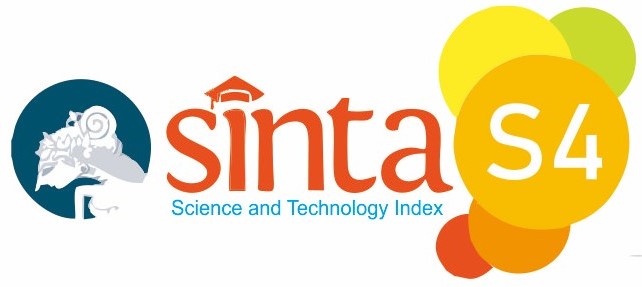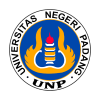The Effect Of Problem Based Learning Model On Student Learning Results On The Elements Of Cost Planning And Scheduling Of Building Construction At SMK Negeri 1 Pariaman
Abstract
This lowed studied outcomes from students element a cost planning and scheduling of building construction element in choosing the PBL learning model. The researched waste make to determiner how effective the PBL studies model is in improve college studies outcoms through the elements of Cost Planning and Scheduling of Building Construction. The type of researched former attempt researched by affected tentative design form. The number of researched samples used was 45 people: 20 XI DPIB 1 students the attempt class, then 25 XI DPIB 2 the control clases. This attempt classes used Problem Based Learning (PBL) model. The researched wased carri off by giving test instrumental form of pretests with posttests. For the test of test questions, has been conducted in clases XI DPIB 2college SMKN 1 Padang within 26 respondents. This studies show that PBL can improve college studies outcomes in the matter of calculating foundation work. This averrage value student sudeis outcom attempt class was 77.95 with control classes waste 61.76. In addition, this effect hypothes testing carried out usee this Indepedent Sample t-Test tes obtain t_count> t_table or 6.038> 2.01669 then Ha is accepted. Therefore, this studied proves that PjBL model could fix the studies achievement of DPIB XI class college on the elements of the Cost Plan and Building Construction Scheduling.
References
Alfajri,M.,. Edidas, E., & Thamrin(2019). Pengaruh Models Pembelajaran ber-Kooperatif dengan Tipe Stad pada Hasil Belajar Penerapkan Dasar-dasar listrik. Voltekknika (Voccational Teknika Elektronika Informatika), 7(3).249. http://doi..org/10.24036/voteknika.v7i3.105688
Amanda, L., Yanuar, F.,Devianto, D (2019). Pengujian Validittas serta Reliabelitas Tingkatan Partisipan Politik Masyarakat Kota Padang. Journal Matematika UNAND, 8(1), 179. https://doi.org/10.25077/jmu.8.1.179-188.2019
Hasanah, U.,Sarjono, S.,& Hariyadi, A. (2021). Pengaruh Model Problem Based Learning Terhadap Prestassi Belajar IPS SMP Tarunna Kedung Addem. Aksara: Jurnal Ilmu ke-Pendidikan Nonformal,, 43. https://doi.org/10.37905/aksarra.7.1.43-52.2021
Kemendikbudristek. (2022). Buku Saku: TanyaJawab Kurikulum Merrdeka. Kementerian Pendidikan, Kebudayaann, Riset serta Teknologi, Kementeriaan Pendidikan, Kebudayaan, Riset dann Teknologi, 9–46. http://reposittori.kemdikbud.go.id/25344
Kojongian, S., Mewengkang, A.dan Takaredase, A. (2022). Pengaruh Model Problem Based Learning Belajar Simulassi Diggital Siswa Edutik : Jurnal kependidikan Teknologi Informasi Komunikasi, 1(6),597–601. https://doi/10.53682k.v1i6.207
Magdalena, I. Anggraini,,Khoiriah, S(2021). Analissis Pembeda Soal, serta Taaraf Kesukaran Soal Bilangan Romawi Kelas 04 SDN Tobat 01 Balaraja. Jurnal Pendidikan Ilmu Sosial, 3(1), 151–158. https:/ejournal.stitpn.ac.id/index.php/nusantara
Malinda, V., & Setiawan, W. (2022). Implementasi problem based learning terhadap hasil belajar mattematika siswa SMK klas XI. Jurnal Pembelajaran Matematika Inovatif, 5(3), 703–710. https:/org/10.22460/jpmi.v5i.703-710
Nurfitriyani, S.A. (2022). Penerapan Video Pembelajarran Cara Menghitung Volume Pekerjaan Konstrukksi Bangunan Gedung. Jurnal Pendidikan Indonesia, 7, 40–50.
Pebriyani, E. P. & Pahlevi, T. (2020). Pengaruh Models Pembelajaran Problems Bassed Learning (PBL) Kemampuan Berpikir Kritis beserta Hasil Belajar Peserta Didik terhadap Mata Pelajaran Ke-arsippan Kelas X OTKP SMK Negeri 1 Sooko daerah Mojokerrto. Jurnal ke-Pendidikan Administrasi Perkantoran (JPAP), 8(1), 47–55. https:/doi/10.26740/jpap..p47-55
Pertiwi, F. A., Luayyin, R. H., & Arifin, M. (2023). Problema Based Learning dalam Meningkatkan Keterampilan Berpikir Kritis: Meta Analisis. JSE: Jurnal Sharia Economica, 2(1), 42–49. https:/doi.org/10.46773/jse.v2i1.559
Rachmawati, N. Y.& Rosy, B. (2020). Pengaruh Models Pembelajaran Problems Bassed Learning (PBL) pada Kemampuan Berpikir Kritis dalam Pemecahan Masalah terhadap Mata Pelajaran Administrasi Umum khusunya Kelas X OTKP SMK N 10 Suraabaya. Jurnal Pendidikan Adminstraasi Perkantoran (JPAP), 9(2), 246–259. https:/org/10.2640/jpap.v9n.p246-259
Rahman, A., Munandar, S.Fitriani,, Karlina,Yumrianni. (2022). Pengertian Pendidikan, Ilmu Pendidikan dan UnsurUnsur Pendidikan. AlUrwatul Wutsqqa: Kajian Pendidikan Islam, 2(1), 1–8.
Saadah, F,Y.& Susanti, L.Y.(2020). Pengaruh Model-model Pembelajaran ber-Kooperatif sesuaiTipe STAD pada Hasil Belajar IPA Kelas VII MTs. Indonesian Journals of Mathematics with Naturral Scien Educations, 1(2), 81–90. http:/org/10.3519/mass.v1i2.29
Saputri, R.(2018). Guru berperan diKelas “Fasilitator dalaam Proses Pembelajaaran Daerah Kec.Bangkalan Rike Dyah Ramadhanni Saputri. Osf.Io,1–11.
Soegiyono. (2011). Metode Penelitian Kuantitatif sertaKualitatif ,R&D.
Solichin, M. (2017). Analisis Pembeda Soal, Sukar, Validitasi Butiran Tes, Interpretasi Tes Hasil serta ke-Valid Ramalan Evaluasi Kependidikan. Dirasaat: eJurnal Mannajemen Pendidikan Islam, 2(2), 192–213,,www.dep.diknas.go.id/evalluasi.proses
Supardi,.(2022). Penerapan Models Pembelajaran Problems Based Learnings (PBL) terhaddap Persamaan serta Fungsi Kuadrat dalam Peningkatkan Hasil Belajar siswa Kelas Xi Tia Smkn 2 Bogor. JPG: Jurnal Pendidikan Guru, 3(1), 22. https://.org/10.36632/.v3i1.6600
Sutisna, (2020). Statistikaa Penelitiaan: Tekniks Analises Penelitian Kuantiitatif. Universitas Negeri Gorontalo,, 1–15. https://.ung.id/geet/karyalmiah/4610/Teknik-AnalisisDataPenelitian-Kuantitatif
Suyitno(2020). Pendidikan Vokasi Kejuruan bersrategi serta Revitalisasi pada Abaad ke21.
Wahab., Junaedi, , & Azhaar,(2021). Efektifitas Pembelajarran Statistik Pendidikan penggunan Uji Peningkatan N-Gain diPGMI. Journal Basic,5.2, 1039–1045. https://org/10.310o4/bassic.v5i2..845
Submitted
Copyright (c) 2025 Jurnal Vokasi Mekanika

This work is licensed under a Creative Commons Attribution 4.0 International License.








.svg_.png)


